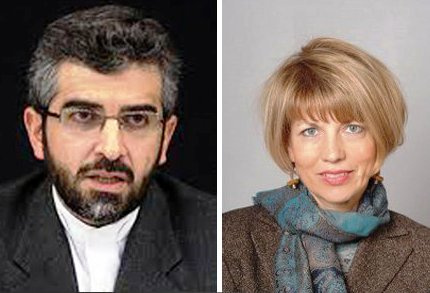Prospect of Negotiations after Schmid-Bagheri Meeting

- It can be said that the problems are basically over the formula which the West has proposed to be conducted in three stages. The first stage includes halting 20% uranium enrichment, transferring 20% uranium to a third country (neither Iran, nor P5+1 countries), and closing Fordow, i.e. stop, transfer, and close. These three measures of the first stage are part of the three-stage formula.
- This is while Iran believes that what the West intends to do in exchange for these three measures are not acceptable; meaning that Iran expects that the P5+1 at least officially declares that it agrees with uranium enrichment in Iran and or officially states that they will at least remove parts of sanctions, i.e. those that are not part of the resolutions, including the Central Bank and the purchase of Iranian oil by EU countries.
- The West has not yet put aside the strategy of pressure and negotiations, while it can direct its strategy towards cooperation and negotiations for confidence-building and create a suitable atmosphere for agreement.
- I do not agree with the issue that neither side, especially the US, intends to reach an agreement until the presidential elections. This is an incorrect analysis, for if an agreement that is accepted by the US is reached, it will be a victory for Obama on which he can maneuver during his campaigns.
- But since the US is not able to reach the accepted agreement, negotiations will be prolonged.
- Iran will not change its position; not only until before the presidential elections, but also not before a major development occurs in this process. Iran is willing to reach an agreement, but an agreement which is accepted by the regime, not just accepted by the US.
- US strategy on this issue will not change even if Romney is elected, as it was the case when Bush left and Obama came to power. But their tactics will be different.
- For example, US strategy during the Bush presidency was suspension of enrichment as a pre-condition for negotiations. But Obama changed this tactic and said that he is ready to negotiate with no pre-conditions but he simultaneously continued to exert pressure through sanctions.
- These tactics are within the same strategy. This strategy is that Iran must principally not have any nuclear activity. Whether Obama is in power or Romney, this strategy will not change, although tactics may differ.
- In my opinion Romney will have the same conditions as Obama has with regard to Iran’s nuclear issue. Romney must direct his tactics towards a path in which he can define a new cooperation with Iran. Being more radical does not mean wanting a military attack against Iran. During presidential campaigns, the candidates take stronger positions, but when they are elected, their statements will become more logical and within certain frameworks.
- But I totally agree with this assessment that no matter whether Romney is elected or Obama, the situation for Iran will be more difficult.
- But the fact of the matter is that, in this issue, we are not faced with an Iran whose hands and feet are tied. We are faced with an Iran which can take initiatives and positive measures.

